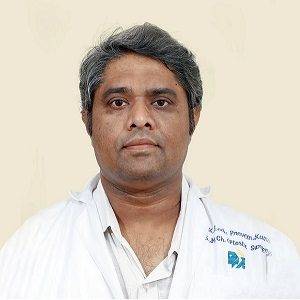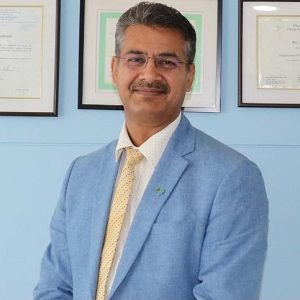Best Doctors in India for Tummy Tuck
- Plastic Surgeon and Cosmetic Surgeon, Chennai, India
- Over 22 years’ experience
- Apollo Hospitals Greams Road
Profile Highlights:
- Dr. Leela Praveen Kumar is one of the top Plastic Surgeons in Chennai with more than 22 years of dedicated experience.
- The doctor is frequently visited by the patients for Breast implants, Vaser Liposuction, rhinoplasty, facelift, Breast Reduction, Bariatric Surgery, Microsurgery, Body contouring, Hand surgery, and Onco Reconstruction.
- Dr. Leela Praveen Kumar also manages a non-Surgical fat reduction procedure, known as Cryolipolysis.
- Plastic Surgeon and Cosmetic Surgeon, Chennai, India
- Over 40 years’ experience
- Apollo Hospitals Greams Road
Profile Highlights:
- Dr. Sundararajan M S is one of the best Plastic Surgeons in India, having practiced for more than 40 years.
- The doctor offers lipo filling, body contouring, non-Surgical facelift, tummy tuck, implants, etc.
- Dr. Sundarajan bagged the Best paper award in 2008 & 2013 and the other Gold Medal for his contribution to the field.
- Plastic, Aesthetic and Reconstructive Surgeon, Gurugram, India
- 25 + years’ experience
- Medanta-The Medicity, Gurgaon
Profile Highlights:
- Dr. Aditya Aggarwal is a distinguished plastic surgeon with a career spanning over 25 years, currently serving as the Vice Chairman of the Department of Plastic, Aesthetic, and Reconstructive Surgery at Medanta The Medicity.
- Dr. Aggarwal’s expertise in cosmetic and reconstructive surgery has earned him both national and international acclaim.
- Dr. Aggarwal’s medical journey began with training at the prestigious IMS BHU Varanasi and KGMC Lucknow (now KGMU), followed by advanced fellowships in Taiwan, Japan, the United Kingdom, and Germany.
Best Hospitals in India for Tummy Tuck
Hospital Highlights:
- Apollo Hospitals is a private healthcare group in India, with its headquarters based in Chennai. Established in 1983 by Dr. Prathap C. Reddy, the group offers a wide range of medical treatments and services across various specialties.
- It is renowned for emphasizing innovation and utilizing cutting-edge medical technologies into patient treatment.
- Known as India’s first corporate hospital, Apollo Hospitals is often credited for pioneering the private healthcare revolution in the country.
- With clinics and hospitals located all throughout India, Apollo Hospitals is a nationwide healthcare organization. Its presence can also be found in foreign countries.
- Preventive health examinations, medical and surgical treatment, and diagnostic centres are just a few of the services that the Apollo group provides.
- The group has several centres of expertise, including Cardiac Sciences, Neurosciences, Orthopedics, Emergency Care, Cancer Care, and Organ Transplantation.
- City: Chennai, India
Hospital Highlights:
- RIMC is a multi-specialty hospital in a sprawling area of 36 acres located in Chromepet, Chennai, Tamil Nadu, India.
- The facility has 450 beds including 130 critical care beds, 9 operating rooms, modern reference laboratories and radiology services, and is conveniently located near road, rail and air transportation.
- RIMC is led and managed by world-renowned physicians committed to healthcare.
- RIMC offers the broadest range of clinical care, education, and research. The hospital offers state-of-the-art technology and modern treatment facilities designed to provide health care at an affordable cost.
- Rela Institute is driven by patient needs, comfort and confidence.
- City: New Delhi, India
Hospital Highlights:
- Fortis Hospital in Shalimar Bagh is a multi-super specialty hospital that strives to provide world-class patient care by leaving no stone unturned.
- Fortis, Shalimar Bagh, with 262 beds and a 7.34-acre footprint, provides the best level of medical care through its team of doctors, nurses, technicians, and management professionals.
- City: Bengaluru, India
Hospital Highlights:
- Established in 2007, the Apollo Hospitals Bangalore is a 300-bed multispecialty hospital situated in Bannerghatta Road, Bangalore.
- Equipped with the state-of-the-art technology, it is a leading hospital dedicated to providing healthcare needs to patients with compassion and expertise.
- It is the first hospital to have completed the highest number of Robot Assisted Heart Surgeries in India.
- Over the years, it has successfully conducted some of the rarest medical procedures such as spinal angiolipoma excision, autologous chondrocyte implantations, and tibial tuberosity shift with MPSL reconstruction.
- The Apollo Hospitals Bangalore has the reputation of performing the greatest series of airway stents in the country.
- Additionally, the hospital is known for providing comprehensive treatment in specialties such as gastroenterology, urology, gynecology, oncology, colorectal surgery, etc.
- The “The Minimal Access Surgery Centre” (MASC), one of Apollo Hospitals, Bangalore’s premier Centres of Excellence, is devoted to the use of minimally invasive surgical procedures.
- In 2013, THE WEEK-A C Nielsen, Best Hospital Survey ranked Apollo Hospitals Bangalore as the 2nd best multi-speciality hospital in Bangalore.
- City: Mumbai, India
Hospital Highlights:
- Gleneagles Global Hospital The 450-bed facility comprises of 17-stories, housing state-of-the-art infrastructure, and advanced medical care facilities.
- The hospital offers end-to-end clinical, surgical, and diagnostic services. It is equipped with a team of eminent medical professionals aided by qualified nurses and medical staff
- The Hospital offers advanced Endoscopic procedures, Hepatobiliary and Liver Surgeries, Surgical and Medical Gastroenterology, Bariatric Surgery, and Robotic surgery.
- The hospital is a center of excellence for Orthopedics, Joint Replacement, Knee Replacement, and Hip Replacement surgery.
- City: Hyderabad, India
Hospital Highlights:
- CARE Hospitals were established in the year 2000, by CARE Group.
- The multispecialty hospital has 435 beds, including 120 critical care beds, with an annual inflow of 180000 outpatients and 16,000 in-patients.
- The hospital provides specialty medical services in Cardiology, Cardiothoracic Surgery, Pediatric Cardiology, Pediatric Cardiothoracic Surgery, Neurology, Neurosurgery, Nephrology, and Urology.
- The hospital has the first dual source, 128 slice CT scanner (for high precision cardiac imaging) – the first of its kind in south India.
- The hospital offers a wide range of accommodation facilities for the convenience of its varied patient base, ranging from general wards to super deluxe rooms.
- City: Mumbai, India
Hospital Highlights:
- Fortis Hospital in Mulund is a 315-bed multi-speciality tertiary care hospital with five JCI accreditations that offers a wide variety of diagnostic and treatment services. The Fortis Hospital in Mulund delivers patient-centred treatment with cutting-edge technology, highly skilled and experienced surgeons, and paramedical staff.
- This institution houses Maharashtra’s largest multi-organ transplant centre. It is also the first heart transplant centre in western India to conduct 100 or more consecutive heart transplants in under four years. It is the only hospital in the city to have multi-organ transplants and has handled the youngest patient for angioplasty. Fortis Hospital Mulund now boasts the first advanced surgical robot in central Mumbai.
- Cardiology and heart surgery, urology, nephrology, neurosciences, orthopaedics, digestive care, emergency and critical care, and maternity care are among the services provided by the hospital.
- City: New Delhi, India
Hospital Highlights:
- Manipal Hospitals, Dwarka, is a super-specialty hospital in Dwarka, New Delhi, which is a part of Manipal Hospitals Group.
- The hospital aims to provide the best treatment on par with international standards at a fraction of the cost.
- Equipped with 380 beds, the hospital is also one of the new age hospitals which are equipped fully with state-of-the-art infrastructure, cutting-edge technology as well as the latest and advanced clinical practices. The hospital also has 13 modular Operation theatres with 118 beds which are solely meant for critical care.
- The hospital comprises internationally acclaimed doctors and highly professional and experienced hospital and medical staff who are able to provide preventive, therapeutic, and diagnostic services all under one roof.
- City: Chennai, India
Hospital Highlights:
- Located in Chennai, India, MGM Healthcare is a top multispecialty hospital that provides all medical services under one roof.
- Since its founding in 2019, MGM Healthcare has quickly become a leading national referral centre, creating several innovative flagship initiatives.
- MGM Healthcare combines next-generation medical and digital technologies to provide better patient results.
- With 12 centres of excellence, more than 400 inpatient beds, 100 intensive care unit beds, and 24/7 emergency care, MGM Healthcare leaves no chance in redefining the patient experience in Chennai.
- MGM Healthcare boasts 250+ expert doctors across 30+ departments, including Cardiology, Pulmonology, Neurology, Obstetrics & Gynaecology, and more.
- They house 12 specialized Centres of Excellence, including Neurosciences, Orthopaedics, and Multi-Organ Transplantation.
- Their team of doctors, nurses, and paramedics works together to give every patient individualized treatment.
Hospital Highlights:
- Lilavati Hospital & Research Centre is India’s premier multi-speciality tertiary care hospital and has been recognised as a global medical excellence centre.
- Lilavati Hospital & Research Centre has built an unrivalled level of trust with its patients over the years, thanks to a solid foundation that comprises cutting-edge facilities, the best medical competence, research, education, and charity endeavours.
- The hospital is quite proud of the fact that it now serves patients from all kinds of backgrounds, not just from the United States but from all around the world.
- The hospital has a total of 323 beds, one of the largest Intensive Care Units (ICUs), 12 Operation Theatres with modern amenities, over 300 consultants, and almost 1,800 personnel.
Tummy Tuck
Tummy tuck also termed as abdominoplasty, is a cosmetic surgical procedure for flattening the abdomen by removing extra fat and skin; to improve its appearance. It tightens the walls in the abdominal area. Although it is different from liposuction, one can choose to get liposuction along with a tummy tuck.
You can choose to go for this procedure if you have excess fat or skin around the area of your belly button or a weak lower abdominal wall. A tummy tuck also helps to boost your body image.
Purpose
People can choose to go for a tummy tuck for a number of reasons. People with excess fat or poor skin elasticity or weakened connective tissue in the abdomen usually choose this procedure. These conditions are usually caused by significant changes in weight, pregnancy, abdominal surgery or aging.
Along with removing loose and excess skin and fat, it can also remove stretch marks and excess skin in the lower abdomen below the belly button. A tummy tuck however won’t be correcting any stretch marks outside of this area.
This procedure can also be combined with other contouring cosmetic procedures such as breast surgery. You can also consider this procedure after you have liposuction, as liposuction only removes the tissue under the skin and fat but not any excess skin.
It is to be noted that everyone isn’t the right candidate for a tummy tuck. Your doctor might caution against it if you are planning to lose a significant amount of weight, have a severe chronic condition, like diabetes or heart disease or if you have had a previous abdominal surgery which caused significant scar tissue.
Preparation
Initially, you will need to talk to a plastic surgeon about the procedure. A surgeon will likely:
Review your medical history- You will need to answer questions about your current and past medical conditions. You need to inform your surgeon if you are taking any medications or have taken any recently. Discuss any surgeries you have had as well.
Discuss your expectations- It is important to explain to your doctor why exactly you want a tummy tuck and what you hope for in terms of appearance after the procedure. Please make sure that you understand the benefits as well as the risks before the procedure. Also keep in mind that any previous abdominal surgery might limit your results as well.
Do a physical exam- To determine your treatment options, your doctor will need to examine your abdomen. He/she might also need to take pictures of the abdomen for your medical record.
Before undergoing the procedure you also need to:
Stop smoking- Smoking decreases blood flow in the skin, thus, slowing down the healing process. It also increases the risk of tissue damage. Therefore, if you smoke, your doctor might recommend that you stop doing so before your surgery and during the recovery period.
Avoid certain medications- Few medications such as aspirin, herbal supplements and anti-inflammatory drugs will need to be avoided.
Maintain a stable weight- Ideally it is important to maintain a stable weight for at least 12 months before having a tummy tuck. If you are overweight, you will need to lose weight before this procedure. Any weight loss after the procedure might diminish the results.
Take medication to prevent complications- Shortly before the procedure, you’ll need to begin taking an anticoagulant for preventing blood clotting.
Arrange for help during recovery- Make plans with someone for driving you home after you leave your hospital and ask if they can stay with you for at least the first night of your recovery at home.
A tummy tuck is usually done in a hospital or sometimes at an outpatient surgical facility. During the procedure, you will be under general anesthesia, which will make you totally unconscious and unable to feel any pain. Sometimes, you also might be given a pain-relieving medication and be moderately sedated.
Procedure
The procedure can take from two to five hours depending on the technique being used.
With a complete tummy tuck, your surgeon will first make two incisions. The first one will be from the hip bone on one side to the hip bone on the other side of the body, which is near the public area. The other incision will be around the navel.
If you are having a partial tummy tuck, your surgeon will be making one or two smaller incisions. This can be done laparoscopically or via an open procedure.
Once the incisions are made, the skin is separated from the abdominal muscles. Excess fat is removed from the abdominal area.
If they are separated, the abdominal muscles might need to be pulled together and stitched into place. Then the separated flap of skin is stretched over the abdominal area; after this, excess skin is removed for a tighter appearance. If your surgeon included the navel in the incisions, it is reconstructed in a position where it can look natural.
Sometimes, a surgical drain might be inserted under the skin for collecting any excess fluid. This will be staying in place for many weeks before its removal. Next, the incisions are closed with sutures. A sterile dressing is then applied over the area as well.
After the procedure
Once the procedure is complete, your anesthesia is removed or reversed. If you have a tube in place to help you breathe, this will be removed so that you can breathe on your own before leaving the operating room.
Next, you will be taken to a post-operative area where your vital signs will be monitored. It will several hours before you will be able to get up and walk again. Generally, you can go home or stay in the hospital according to your plan prior to the surgery.
Recovery from any type of tummy tuck can take two weeks to two months. Generally, if you have a large wound and/or a significant amount of fat and skin removed, then your recovery will take longer, as compared to when you have a small wound and a smaller amount of tissue removed.
Risks
There are multiple risks and complications which are associated with the tummy tuck procedure. Some of the risks include:
- Swelling and pain around the surgery area
- Scarring
- Skin discoloration
- Seroma (fluid accumulation)
- Changes in skin sensation
- Bleeding under the skin flap (rare)
Before the procedure, it is always important that you discuss the possible risks with your surgeon.















